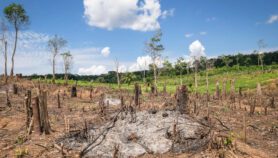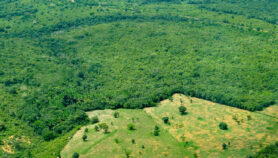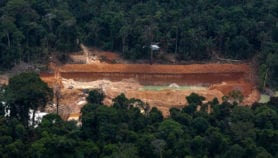By: Katie Mantell
Send to a friend
The details you provide on this page will not be used to send unsolicited email, and will not be sold to a 3rd party. See privacy policy.
 |
The Earth will suffer extreme environmental damage, mass extinctions and severe water shortages in the next 30 years if market forces are allowed to drive the globe’s political, economic and social agenda, according to a new report by the United Nations Environment Programme (UNEP).
Global Environment Outlook-3, released on 22 May, warns that by 2032 more than half the world’s population could live in areas of extreme water scarcity and more than 70 per cent of the Earth’s land surface could be affected by the rapid expansion of cities and other infrastructure developments.
The study — described by Klaus Toepfer, executive director of UNEP as “the most authoritative assessment of where we have been, where we have reached and where we are likely to go” — is intended to prompt world leaders into action ahead of the World Summit on Sustainable Development (WSSD) later this year.
Based on information supplied by a global network of more than 1,000 scientists, it charts the environmental degradation of the last 30 years since the 1972 Stockholm environment conference. It also outlines four policy approaches for the next three decades, and compares the likely impacts on people.
It shows that, if the world continues to put short-term profit at the expense of the environment, the planet will experience the wide-scale destruction of habitats and wildlife and increasing water scarcity.
But if polices are adopted that put sustainability before profit, the extent of water scarcity will remain constant or decrease in some areas, and pollution and habitat destruction will be limited.
The WSSD must produce concrete actions”, “concrete timetables” and “an iron will from all sides” to address these issues, said Toepfer at the launch of the report in London.
“We now have hundreds of declarations, agreements, guidelines and legally binding treaties designed to address environmental problems and the threats they pose to wildlife and human health and well being,” he said.
“Let us now find the political courage and the innovative financing needed to implement these deals and steer a healthier, more prosperous, course for planet Earth.”
© SciDev.Net 2002
See also:
Global Environment Outlook-3
This document needs to be viewed using a pdf viewer such as Adobe Acrobat Reader, available from the Adobe website.
Photo credit: NASA













